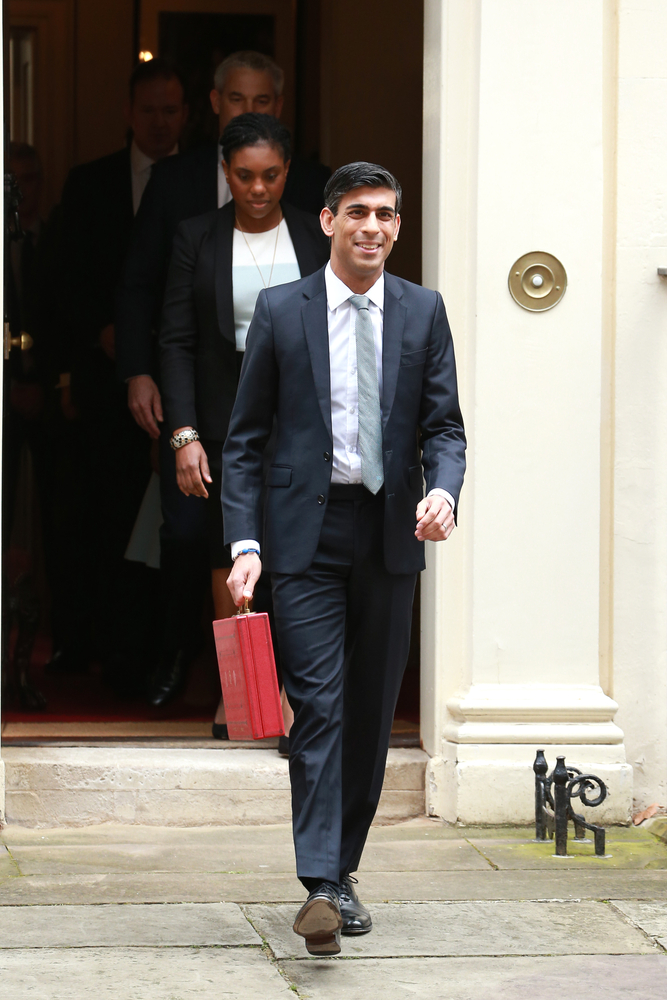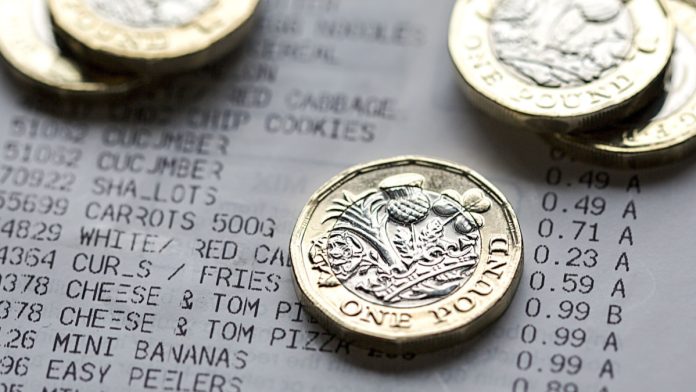UK businesses and consumers woke up to some surprisingly positive economic news today after what has felt like over a year of fiscal doom and gloom in the headlines – this news was that the inflation rate has not risen.
Economic experts had expected the inflation rate to increase even further this month, but the Bank of England was able to reveal this morning that the figure stands at 4%. Whilst this is still not ideal for the BofE or the economy at large, it is still better than anticipated.
The BofE’s target for inflation is 2%, with the current figure double that. However, the bank and the government remain positive – given that the figure is a massive fall from the 41-year high 11.1% in October 2022.
“We have had good news,” said Bank of England Governor, Andrew Bailey, in a press conference this morning. “But we have to be confident that inflation will fall all the way back to the 2% target and stay there, and we’re not yet at a point where we can lower interest rates.”
Today’s announcement is somewhat of a double edged sword for the economy then, as whilst inflation has not risen – meaning the prices of goods and services will remain steady – interest rates for both businesses and consumers will remain at 5.25%.
This will not be as relieving to the finances of either as many will have hoped, but nonetheless some comfort can be found in the fact that prices will not skyrocket even further, although they will continue to rise regardless.
Alistair Douglas, CEO of TotallyMoney, said: “While inflation has dropped far below its 11% peak, the impact will be felt for years to come. The cost of living is now considerably higher than it was, and the poorest households have been hit the hardest.
“Savings have been spent, and the government is barely supporting those it’s supposed to serve. For 11 million people, borrowing is now the only option — but many mainstream lenders are choosing not to lend to those who need it the most.
“Unregulated borrowing is soaring, meaning many are turning to buy now pay later, payday loans and illegal money lenders — falling off the radar and papering over the cracks of what in reality is a financial crisis.
“So while the headline numbers may say inflation is low, or unemployment is steady, the reality is that millions of people are struggling to keep up, more than half a million UK businesses are in significant financial distress, and nobody is receiving the levels of support they need to survive.”

After a difficult few months in terms of PR for Rishi Sunak, the inflation rate may also come as a relief to Britain’s Conservative Party Prime Minister. This year is also set to be a highly significant one, with an election very likely.
Sunak has until 25 January 2025 to call an election but the PM has made it clear that 2024 will be the year. He may be banking on a steady inflation rate as a key means of maintaining public favour.
Commenting on the rate, Conservative Chancellor of the Exchequer, Jeremy Hunt, said: “Inflation never falls in a perfect straight line, but the plan is working; we have made huge progress in bringing inflation down from 11%, and the Bank of England forecast that it will fall to around 2% in a matter of months.”
The Labour Party opposition remains critical, however – unsurprising as it is their job, after all. Also, whilst inflation has not risen, the fact it is more than double the BofE’s 2% target is still far from a great look.
Rachael Reeves, Labour’s Shadow Chancellor of the Exchequer, commented on today’s news: “Inflation is still higher than the Bank of England’s target and millions of families are struggling with the cost of living.
“The Conservatives cannot fix the economy because they are the reason it is broken. It’s time for change. Only Labour has a long-term plan to get Britain’s future back by delivering more jobs, more investment and cheaper bills.
“The Conservatives cannot fix the economy because they are the reason it is broken. It’s time for change. Only Labour has a long-term plan to get Britain’s future back by delivering more jobs, more investment and cheaper bills.”

Fintech and payments stakeholders should pay attention to the inflation situation closely, not just because it directly affects their own finances and those of their customers, but also because of the political ramifications.
For the general public, inflation – and its impact on the money in their pocket when doing the weekly supermarket shop – is one of the most visible indicators of how well the economy is doing. It is also the biggest cause for concern among UK SMEs.
“It’s the economy, stupid” is the phrase made famous by President Bill Clinton – above all else, the public will judge their politicians based on economic performance, and with 2024 seemingly an election year this is vital.
This is important for fintech because both Labour and Conservative have unveiled their policies for the sector, although both are seemingly placing a heavy emphasis on technological development.
Tech was a focus of a £500m investment in the Conservatives’ last budget back in Autumn, with AI touted as a particular area of interest. Meanwhile, Labour has put AI and Open Banking at the forefront of its policies towards fintech.
When voters go to the polls, whenever that may be, fintech will not be the issue at the forefront of their minds, with inflation and other high-profile issues – immigration, the war in Ukraine, instability in the Middle East, etc. – the most pressing matters. However, their decision on election day could be unwittingly influential on the future of UK fintech.























